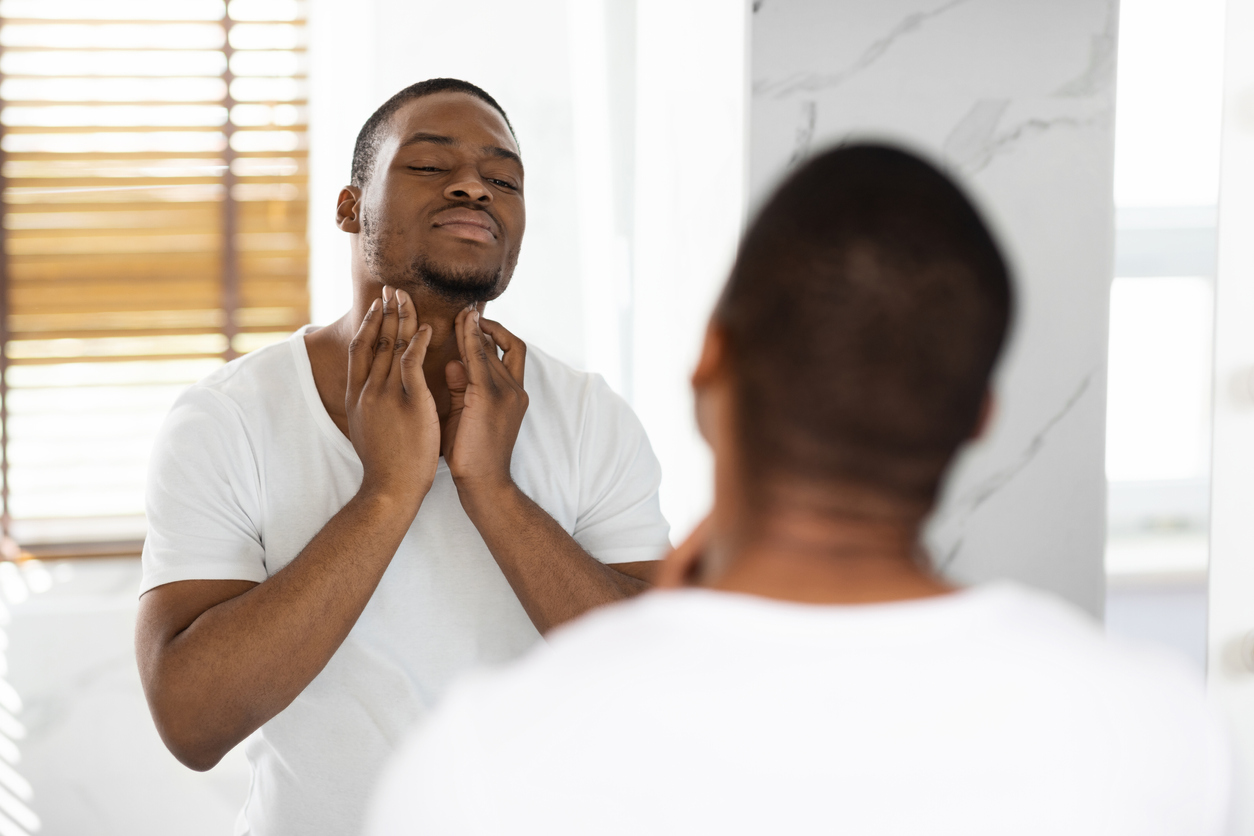
You might remember those days when you complained of a sore throat, and your mom would feel your neck. She would say something about your glands being swollen, or not swollen, and then decide if you were sick.
What are lymph nodes?
Mom wasn't wrong to judge illness this way, and neither are you. The size of your lymph nodes is a good indicator that your body is fighting something.
“The lymph nodes are like barracks where the soldiers come to stay when there's a war on,” says Adam L. Church, MD, an emergency medicine physician at CityMD. “They swell up when you have infections.”
What is the function of lymph nodes?
The lymph nodes make up the larger lymph system, which Dr. Church says is critical to the immune response. The kidney-shaped glands produce lymphocytes, a type of white blood cell that helps the body fight infections.
Where are the lymph nodes?
The human body has hundreds of lymph nodes, but they cluster together in certain parts of the body. The areas where lymph nodes can be most easily felt include the head and neck, armpits, under the jaw, around the collarbone, along the forearm, and in the groin.
What is localized lymphadenopathy?
Lymphadenopathy is the clinical term for swollen lymph nodes. Patients can develop lymph node swelling in one area (localized) or all over the body (generalized). When lymph nodes swell physicians can use history and physical exam clues to figure out what is wrong, explains Dr. Church.
Localized swelling of the lymph nodes in one area is typical for acute infections. Dr. Church says most of the patients he sees in an urgent care setting come in with swollen lymph nodes under the jaw and in the neck. Generally, these individuals have viruses or infections like the flu, tonsillitis, strep throat, mononucleosis, Rubella, Kawasaki disease, or viral pharyngitis.
What is generalized lymphadenopathy?
Generalized lymphadenopathy means the lymph nodes are swollen all over the body instead of being limited to one area. This is often a sign of a systemic infection or an autoimmune condition. Some chronic conditions and medications can also cause and lymphadenopathy.
“When someone comes in with new lymphadenopathy in many parts of their body, we look for an underlying cause such as infection, mono, monkeypox, HIV, or STIs,” says Dr. Church. “Lymphadenopathy in general points out that the immune system is on high alert.” Large, painless lymph nodes can have a more serious meaning.
What happens when your lymph nodes are swollen?
With both localized and generalized swollen lymph nodes, a workup begins with a physical exam and health history that includes discussion about occupation and lifestyle. Based on these findings, Dr. Church may also order blood work or a chest X-ray.
“A good patient history leads you down the road to making a diagnosis," he adds. For example, if you travel frequently, interact with animals, or work outside, these situations can result in various illnesses that activate your lymph nodes such as Lyme disease, Tularemia, or malaria. If Dr. Church finds something more serious than a simple virus or bacterial infection, he refers the patient to a specialist.
When should you pay closer attention to swollen lymph nodes?
Your lymph nodes offer clues about what is going on inside your body. “When the lymph nodes are large, firm, and present for a long time — instead of new or painful — that's not good,” explains Dr. Church. Here are some signs to look out for:
- Pain. Tender lymph nodes are usually a good sign: Lymph nodes hurt because they are part of the body's surveillance system. “When lymph nodes are painful, it means they’re doing their job fighting infection,” he says. “They become painful because they expand quickly and the tissue doesn’t have a chance to relax.”
- Texture. The way a lymph node feels to touch can also give an indication about what is going on. Hard nodes may indicate chronic inflammation or cancer. Firm, rubbery nodes can represent lymphoma or leukemia.
- Size. The larger the lymph node, the more cause for alarm. Small lymph nodes are less concerning. Large, painful lymph nodes are indicative of acute infection. On the other hand, large, hard, non-tender lymph nodes are often warning signs of cancers like lymphoma or leukemia.
“Know where your lymph nodes are and what's normal for your body,” says Dr. Church. “Monitor them, so that when they change — as they will, because they should in defense of your health — you'll understand why and when to go see your physician.”
